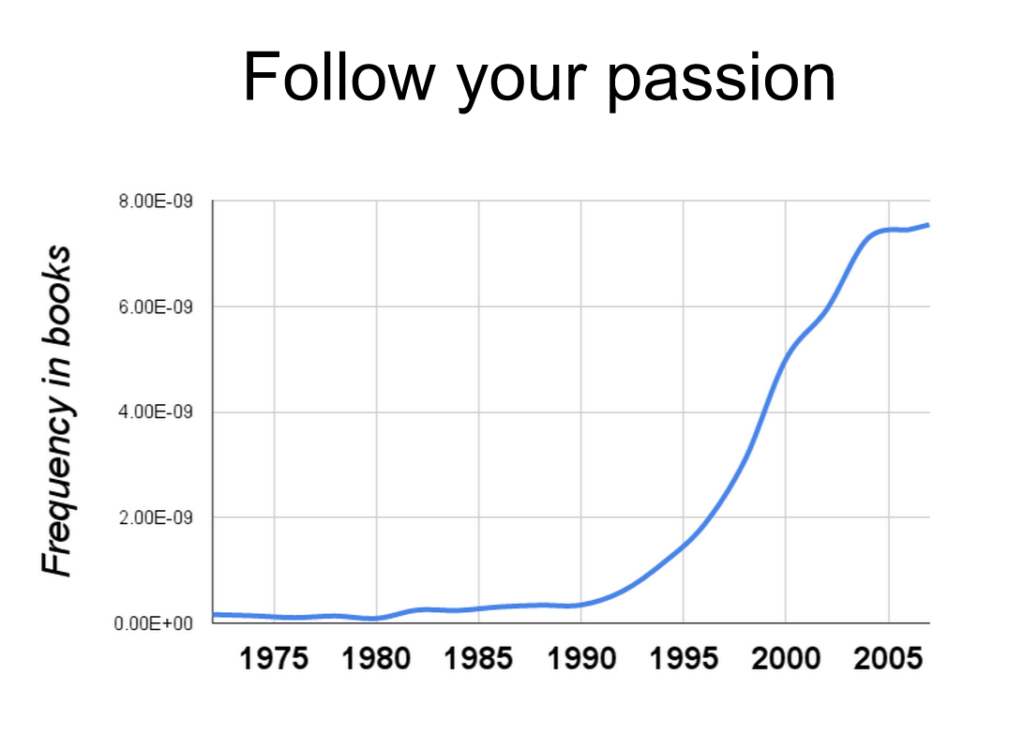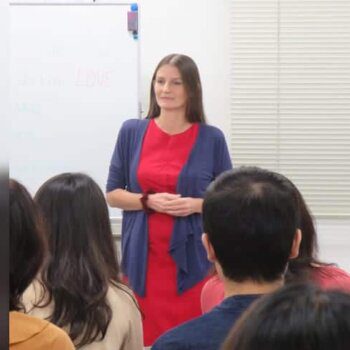“Follow your passion” has become a defining piece of career advice.

The idea is that the key to finding a great career is to identify your greatest interest – “your passion” – and pursue a career involving that interest. It’s an attractive message: just commit to following your passion, and you’ll have a great career. And when we look at successful people, they’re often passionate about what they do.
Now, we’re fans of being passionate about your work. Research shows that intrinsically motivating work makes people a lot happier than a big pay cheque. We also think it’s really important to find something you can excel at.
However, there’s four ways “follow your passion” can be misleading advice.

One problem is that it suggests that passion is all you need. But even if you’re interested in the work, if you lack the other key ingredients of job satisfaction that research has shown are important, you’ll still be unsatisfied. If a basketball fan gets a job involving basketball, but works with people he hates, has unfair pay, or finds the work meaningless, he’s still going to dislike his job.
In fact, “following your passion” can make it harder to satisfy the other ingredients, because the areas you’re passionate about are likely to be the most competitive, which makes it harder to find a good job.

A second problem is that many people don’t feel like they have a career-relevant passion. Telling them to “follow their passion” makes them feel inadequate. If you don’t have a “passion”, don’t worry. You can still find work work you’re passionate about.
Others feel like they have lots of passions, and aren’t sure which one to focus on. We need more precise criteria for comparing our options.
The third problem is that it makes it sound like you can work out the right career for you in a flash of insight. Just think deeply about what truly most motivates you, and you’ll realise your “true calling”. However, research shows we’re bad at predicting what will make us happiest ahead of time, and where we’ll perform best. When it comes to career decisions, our gut is often unreliable. Rather than reflecting on your passions, if you want to find a great career, you need to go and try lots of things.
The fourth problem is that it can make people needlessly limit their options.If you’re interested in literature, it’s easy to think you must become a writer to have a satisfying career, and ignore other options.
But in fact, you can start a career in a new area. If your work helps others, you practice to get good at it, you work on engaging tasks, and you work with people you like, then you’ll become passionate about it. The ingredients of a dream job we’ve found are most supported by the evidence, are all about the context of the work, not the content. Ten years ago, we would have neverimagined being passionate about giving career advice, but here we are, writing this article.
Many successful people are passionate, but often their passion developed alongside their success, rather than coming first. Steve Jobs started out passionate about zen buddhism. He got into technology as a way to make some quick cash. But as he became successful, his passion grew, until he became the most famous advocate of “doing what you love”.

In reality, rather than having a single passion, our interests change often, and more than we expect. Think back to what you were most interested in five years ago, and you’ll probably find that it’s pretty different from what you’re interested in today. And as we saw above, we’re bad at knowing what really makes us happy.
This all means you have more options for a fulfilling career than you think.
_________________________________
About the Author
This article was produced by 80,000 Hours. 80,000 Hours is a web platform that is dedicated to helping as many people as possible lead high-impact careers.They do this by providing career advice for talented young people who want to have a social impact. see more.





























